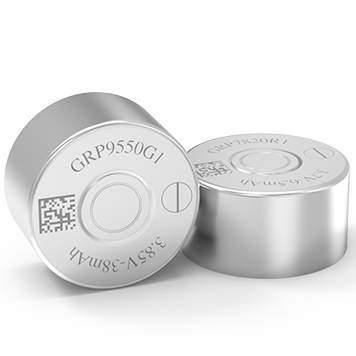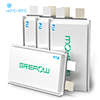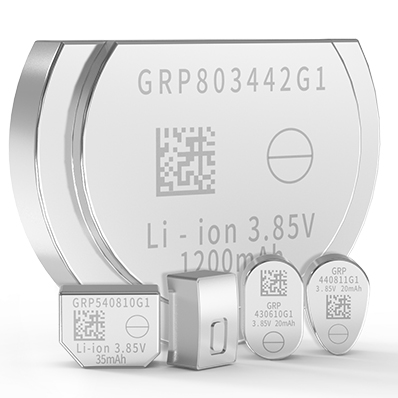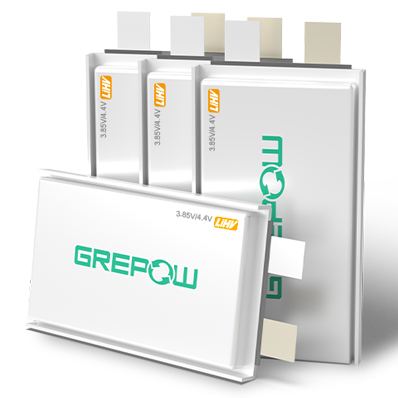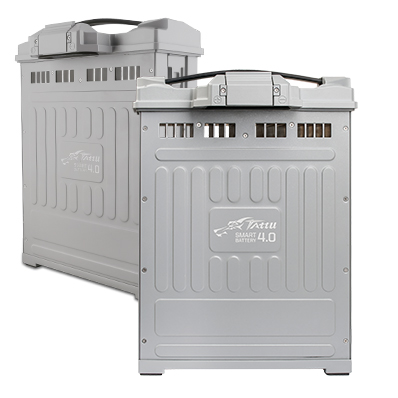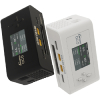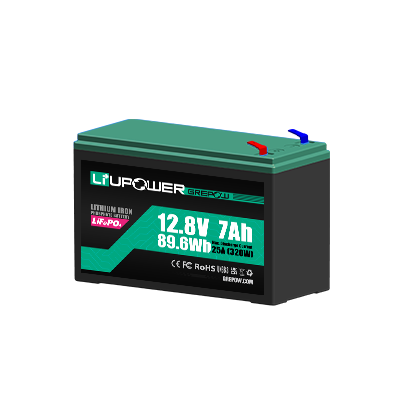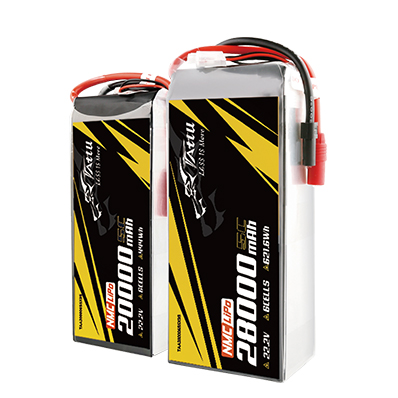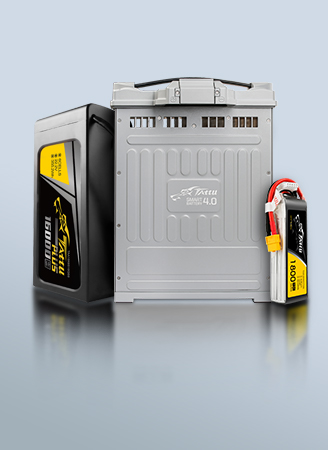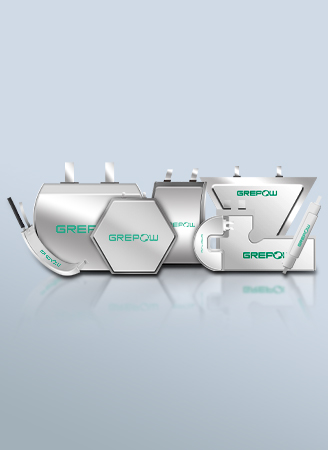Continuous Glucose Monitors Battery Choose Guide
Continuous glucose monitors (CGMs) have revolutionized diabetes management by providing real-time blood glucose data, enabling better glycemic control. Initially bulky and expensive, CGMs have evolved into compact, affordable, and user-friendly devices. Technological advancements, such as sensor accuracy, wearability, and integration with smartphones and other devices, have significantly enhanced their functionality.
The trend is towards more non-invasive and minimally invasive CGMs, with improvements in sensor lifespan and accuracy. Integration with artificial intelligence for predictive analytics and personalized recommendations is also gaining traction. Future CGMs are expected to become even more user-friendly, offering seamless integration with other health monitoring devices and broader applications beyond diabetes management. CGMs require batteries that provide reliable, long-lasting power to ensure continuous operation without frequent replacements or recharging.
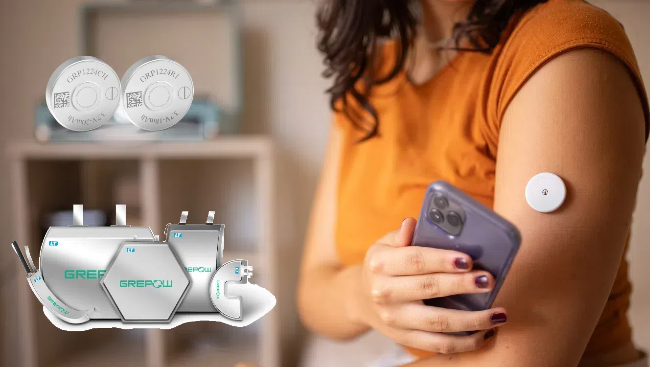
What is a Continuous Glucose Monitor?
A CGM is a medical device used to track glucose levels in real-time throughout the day and night. It consists of a small sensor inserted under the skin, a transmitter that sends data wirelessly to a receiver or smartphone app, and a display device that shows glucose levels. CGMs help people with diabetes monitor their glucose levels continuously, providing valuable insights for better diabetes management.
What Kind of Battery Does a Continuous Glucose Monitor Take and Why?
CGMs typically use small, high-density batteries, such as lithium-ion polymer (LiPo) batteries, due to their superior energy density, longevity, and compact size. LiPo batteries are preferred because they can be manufactured in various shapes and sizes, fitting the small and sleek design of modern CGMs. Their high energy density ensures long-lasting power, reducing the need for frequent replacements or recharging, which is critical for the continuous operation of CGMs.
Advantages of LiPo Battery in Blood Sugar Indicators
Extended Battery Longevity
One of the key advantages of LiPO batteries is their extended lifespan. These batteries can be recharged numerous times compared to other rechargeable batteries, making them a cost-effective option for medical devices like blood glucose monitors. This ensures that individuals with diabetes can rely on their monitors to be operational whenever needed, without the frequent hassle of battery replacements.
Enhanced Portability
LiPO batteries are known for their lightweight and flexible design, making them perfect for portable medical devices, such as blood glucose monitors. Diabetics need to carry their monitors with them at all times, and a lightweight device significantly eases this burden. Furthermore, the flexibility of LiPO batteries allows them to be integrated into wearable medical devices that require a flexible power source.
Cost Efficiency
Compared to other rechargeable batteries like nickel-metal hydride (NiMH), LiPO batteries are more cost-efficient. Their longer lifespan and higher recharge cycles reduce the overall cost of ownership, making them an economical choice for medical devices like blood glucose monitors.
Safety Enhancements
LiPO batteries incorporate several safety features that make them suitable for medical applications. They come with built-in protection circuits to prevent overcharging and over-discharging, which can otherwise damage the battery. Additionally, LiPO batteries are less prone to leakage and explosion, ensuring safety for medical devices that are worn close to the body.
Overall, LiPO batteries offer numerous benefits for blood glucose monitors, including extended battery life, enhanced portability, cost efficiency, and robust safety features. These advantages make LiPO batteries an ideal power source for medical devices that demand reliability, longevity, and portability.
Future Prospects
As technology progresses and the demand for portable medical devices increases, the use of LiPO batteries in the medical field is expected to grow. LiPO batteries have the potential to transform the medical device industry by providing a dependable and durable power source for various devices.
In conclusion, LiPO batteries stand out over traditional batteries for medical devices like blood glucose monitors. Their reliable and long-lasting power, coupled with their lightweight and flexible nature, make them a top choice for portable medical applications. Furthermore, their cost-effectiveness and safety features solidify their place as a safe and economical option for medical devices. The future of LiPO batteries in medical technology looks promising, with potential for significant innovations in the coming years.
Grepow Continuous Glucose Monitors Battery Solutions
Grepow offers a range of battery solutions specifically designed for CGMs, focusing on high energy density, compact size, and safety. Grepow's batteries are engineered to meet the demanding requirements of CGMs, providing reliable, long-lasting power in a lightweight and compact form factor. Their custom battery solutions ensure seamless integration with CGM devices, offering enhanced performance and user experience. If you have any questions or needs, please feel free to contact us at info@grepow.com.
Punch Shaped Lipo Battery
Grepow offers a range of shaped pouch batteries that are perfectly suited to various terminal device shapes. We provide custom shaped Lithium-Ion pouch batteries as thin as 0.4mm and as narrow as 6mm. Available shapes include cruved, round, L-shaped, D-shaped, and C-shaped, ect. Grepow's shaped pouch batteries boast excellent performance and a cycle life of over 1000 cycles, operating within a temperature range of -50°C to 50°C / -40°C to 60°C, and can achieve fast charging at up to 5C.
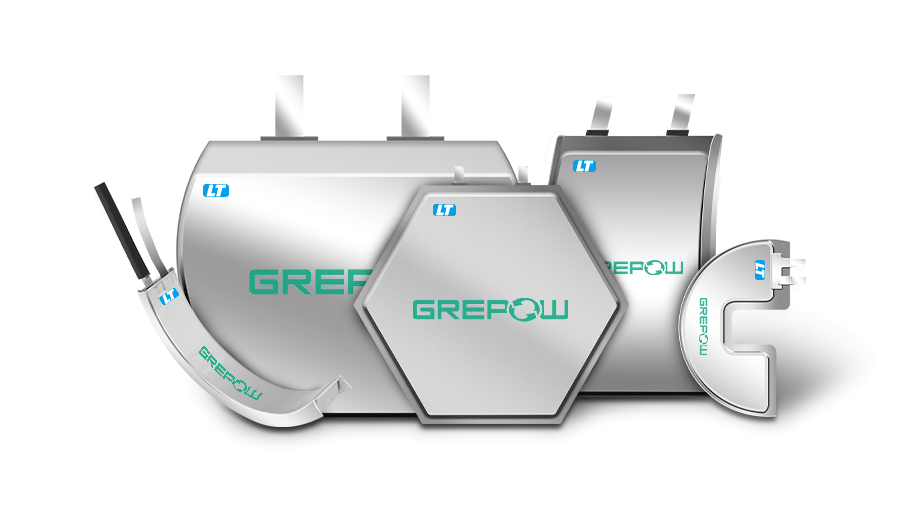
Metal Casing Shaped Lipo Battery
Grepow offers a diverse range of rechargeable metal casing shaped lipo batteries to meet various application needs. Unlike pouch-shaped batteries, metal casing batteries provide enhanced safety by effectively preventing the risk of battery swelling. This advantage eliminates the need for additional design space to accommodate potential expansion, enabling more efficient use of available space. Consequently, these batteries are ideally suited for products with stringent space requirements, ensuring optimal compatibility with compact and demanding design specifications.
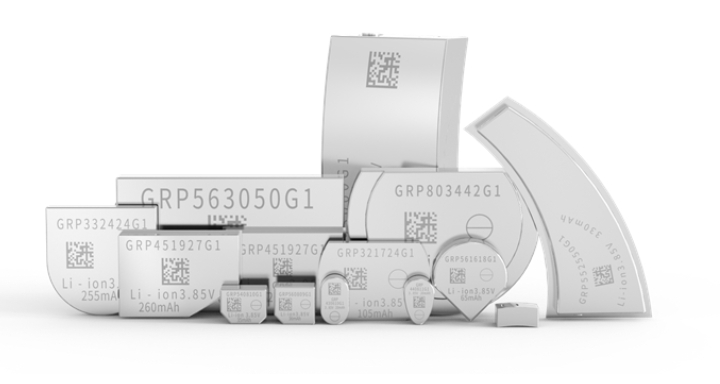
Rechargeable Lithium-Ion Coin Cell Battery
Grepow has provided dedicated energy solutions for high-tech applications in bluetooth headsets for smart phones, notebook bridging function, body shaping and training sensors, medical and health care equipment, wireless sensor and network infrastructure and many more. For all these applications, Grepow offers a range of rechargeable Lithium-Ion button cells and battery assemblies in diameters from 7.8 - 24 mm with 6.5 mAh to 210 mAh.
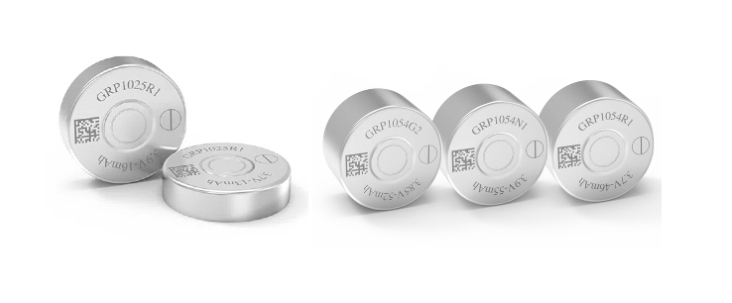
Continuous Glucose Monitors Battery FAQs
Q: How long do CGM batteries last?
A: The lifespan of CGM batteries varies depending on the model and usage, typically ranging from a few days to several weeks.
Q: Can I replace the battery in my CGM?
A: Most CGMs use non-replaceable, rechargeable batteries. The entire sensor and transmitter unit is usually replaced once the battery depletes.
Q: How do I charge my CGM battery?
A: CGM batteries are often recharged using a wireless or USB charger, depending on the device model. Follow the manufacturer's instructions for charging.
Q: What should I do if my CGM battery runs out?
A: If your CGM battery depletes, you may need to replace the sensor or transmitter unit. Ensure you have backup supplies and follow the manufacturer's guidelines.
Q: Are LiPo batteries safe for CGMs?
A: Yes, LiPo batteries used in CGMs are designed with safety features, such as overcharge and short-circuit protection, ensuring safe and reliable operation.
Q: Can I use third-party batteries for my CGM?
A: It is recommended to use batteries provided or approved by the CGM manufacturer to ensure compatibility and safety.
Q: Are there any safety concerns with CGM batteries?
A: Modern CGM batteries, especially those from reputable manufacturers like Grepow, include safety features to prevent overcharging, overheating, and short circuits. Always follow the manufacturer's guidelines to ensure safe usage.
Q: How do I extend the battery life of my CGM?
A: To extend the battery life of your CGM:
●Ensure proper charging practices.
●Avoid exposing the device to extreme temperatures.
●Follow the manufacturer's guidelines for maintenance and usage.
By understanding the battery requirements and benefits of using high-quality LiPo batteries, users can ensure their CGMs function reliably and efficiently, providing continuous and accurate glucose monitoring for better diabetes management. Grepow's battery solutions offer the performance, safety, and customization needed to meet the evolving demands of modern CGMs.
Related Articles
-

Powering Aerial Artistry: Grepow Battery Solutions Behind Drone Light Shows
2025-10-27 -
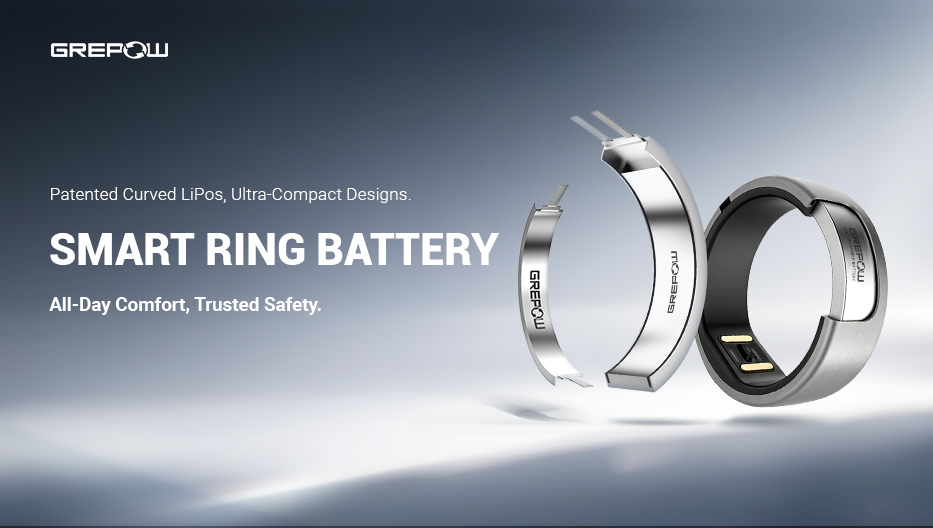
Powering the Future of Wearables: How Grepow's Patented Curved Battery is Revolutionizing the Smart Ring
2025-10-16 -

Grepow Battery Announces Manufacturing Agreement with Powerbanc Group
2025-09-30
Related products
-

Low Temperature Shaped Battery
-
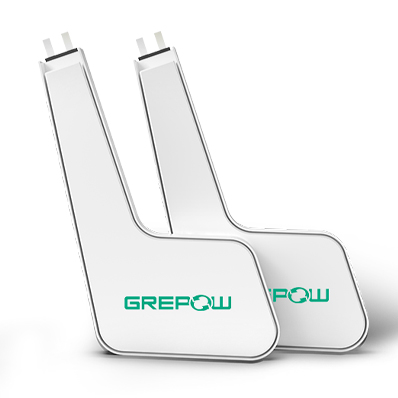
Pouch L Shaped Lipo Battery
-

Pouch D Shaped Lipo Battery
-

Pouch Ultra Narrow Lipo Battery
-

Pouch Round Lipo Battery
-

Pouch Curved Lipo Battery
-

Pouch Ultra Thin Lipo Battery




